Philippine Children’s Songs, Spoken Rhymes and Games for Teaching
Books One & Two
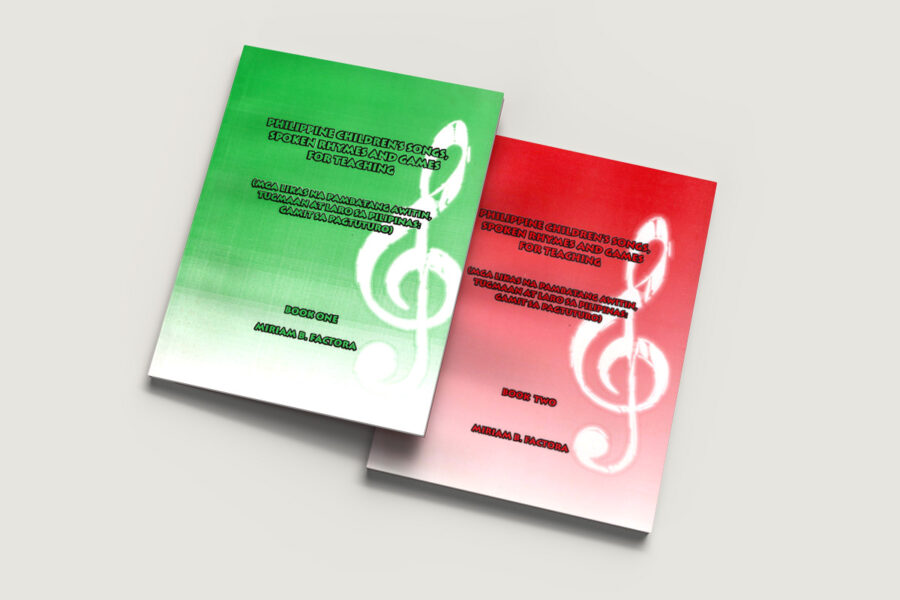
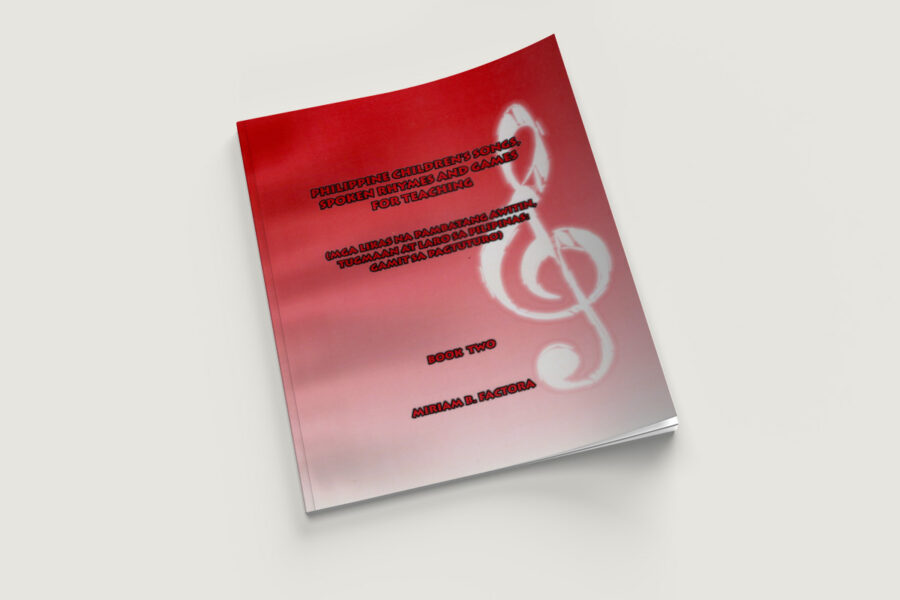
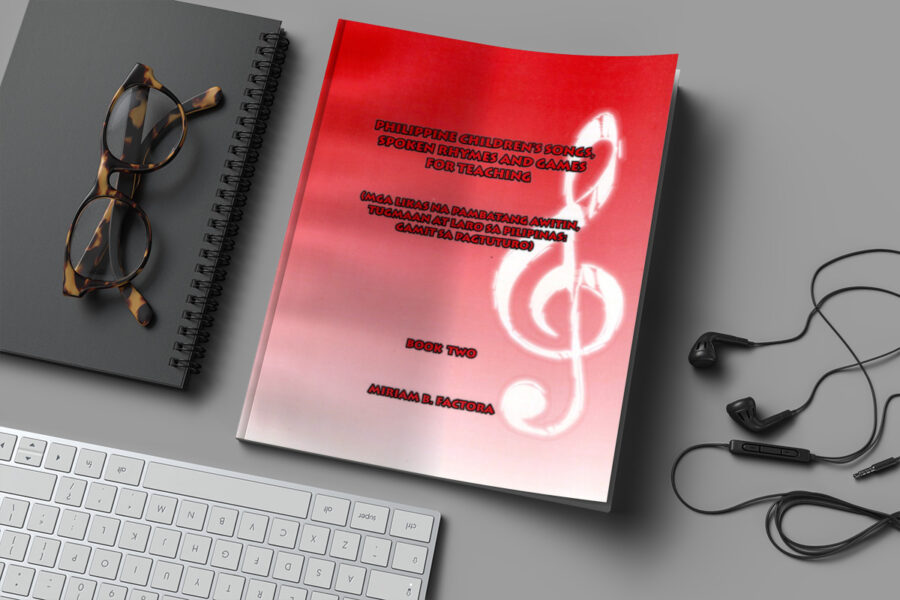
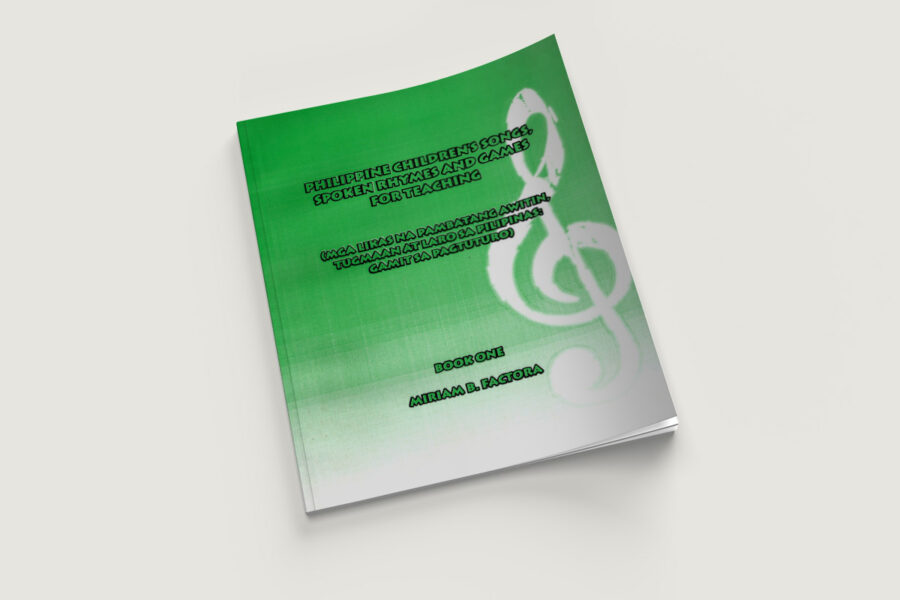
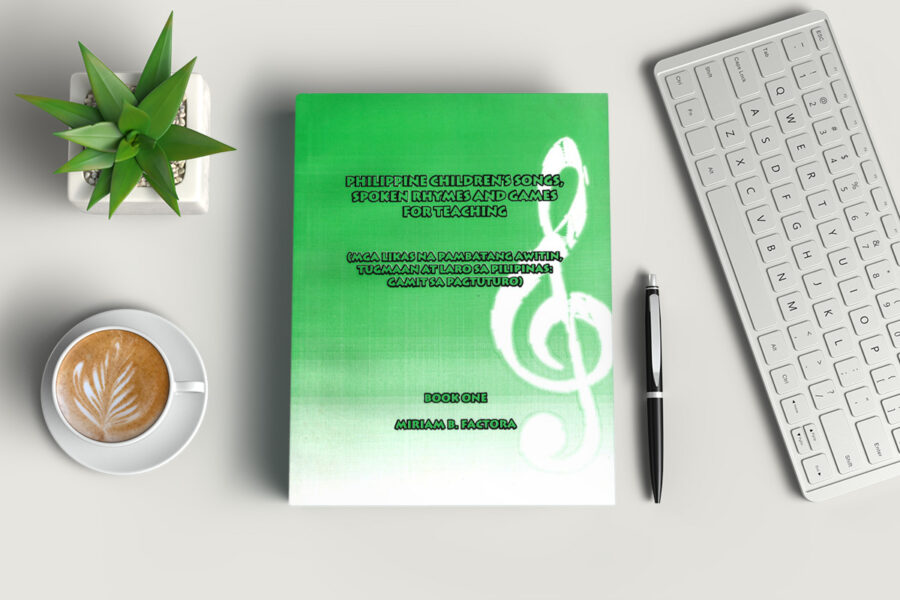
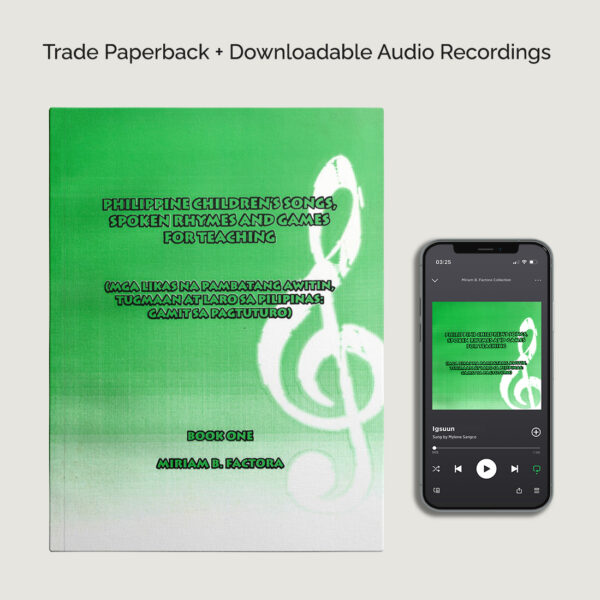
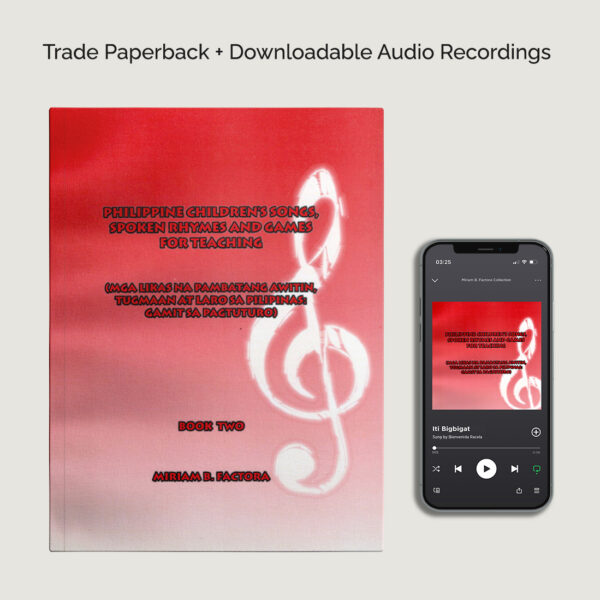
“Philippine Children’s Songs, Spoken Rhymes and Games for Teaching, Books One and Two” offer a rich anthology of songs, spoken rhymes, and games aimed at teaching musical concepts and skills from pre-kindergarten to tertiary levels. These materials were primarily gathered by the researcher/author through extensive fieldwork research, supplemented with secondary sources from theses, dissertations, and existing song collections. These compilations are the product of groundbreaking research conducted in the early 2000s by the author, focusing on indigenizing and localizing the Philippine Music Education Program.
The books stem from a study that informed the author’s doctoral dissertation entitled “A Model of Sequential Music Teaching Utilizing Philippine Vocal Materials,” presented at the University of Queensland in Brisbane, Australia.
These books provide more than just an anthology; they serve as practical models for a sequence to teaching rhythm and melody using a systematic process developed through these major research components: 1) collection and gathering of Philippine children’s folk songs, spoken rhymes and musical folk games; 2) transcription into notation; 3) translation of the materials into English and translation of selected materials into Filipino, the national language; 4) analysis; and 5) classification and systematization of the materials. Systematization resulted in the development of a sequential music teaching model utilizing Philippine vocal materials.
These collections provide more than just transcribed materials; they also include original audio recordings from diverse sources in the field. These informants represent not only a variety of ethnolinguistic groups in the Philippines, but also span across different ages, genders, economic statuses and occupations. They hail from both rural and urban environments, adding to the rich tapestry of perspectives in these collections.
Dr. Miriam Factora’s collection of songs and rhymes is definitely a huge help in preparing and planning lessons. She created a massive songbook of Filipino materials and it opened doors for Filipino music teachers like me to revisit and gain more understanding of our own heritage, culture and traditions. We use the songs in our daily lessons and even in choir. Singing the folksongs also help students learn the language, unlocking words and dialects that are not familiar to them. Every song is like a visit to a town or province in our country which makes the singing experience more like an adventure, not only for the kids but also for the educators.
Venitta Magpantay
Music Teacher | Ateneo de Manila Grade School • Quezon City, Philippines
These books are real gems for music teachers. The games, rhymes, and song selections in these books are research-based, culture-based, and values-laden. From a broad perspective, these books served as a means to provide “quality education” and answered the problem of “lack of instructional materials” for Filipino music teachers. I have used these books among music education students and in the professional development programs of Filipino teachers around the country.
Dolores T. Andres, Ph.D.
Associate Professor of Music Education | University of Santo Tomas, Conservatory of Music • Manila, Philippines
Associate Researcher, National Research Council of the Philippines
Ever since I discovered Dr. Factora’s works in the Kodály courses presented by the Kodály Society of the Philippines, her books—namely Philippine Children’s Songs, Spoken Rhymes and Games for Teaching Books One and Two—have been my references for songs coming from the Filipino culture. These books have remarkably helped me in my lesson planning. I use the rhymes and games for young learners and the more complex songs to teach more complex concepts to upper-grade students.
Raquel Ceradoy
Former Music Teacher | De La Salle Santiago Zobel School • Muntinlupa, Philippines
Music Teacher | St. Peter's College • Palmerston North, New Zealand
Dr. Miriam Factora's collection of Filipino folk songs and rhymes has given us a solid foundation and a clearer direction in the Philippine Music Education. The adaptation of the Kodály Approach to the Philippine setting was made possible because of her collection. It was through the use of these songs and rhymes that both teachers and students were not just able to present and learn the concepts well, but they were also able to revisit and appreciate more the Filipino culture and traditions.
Roselle Elinore Matias
Music Teacher | Ateneo de Manila Grade School • Quezon City, Philippines
